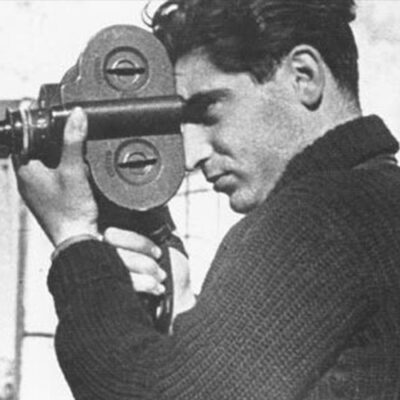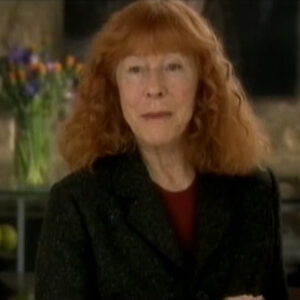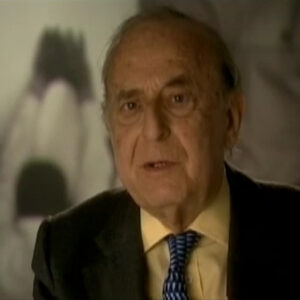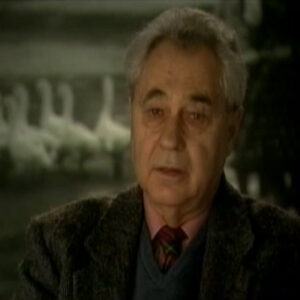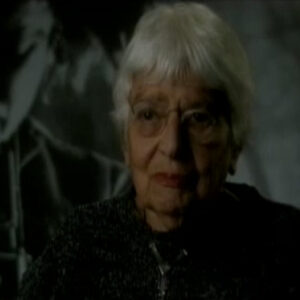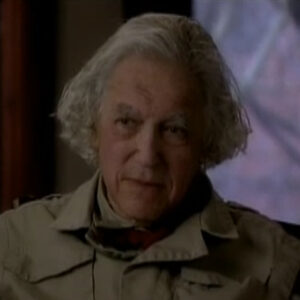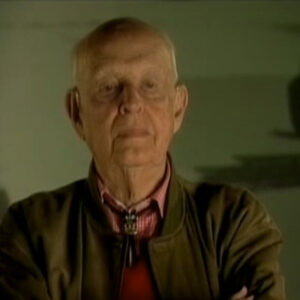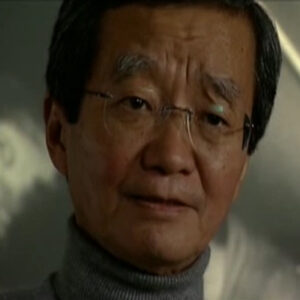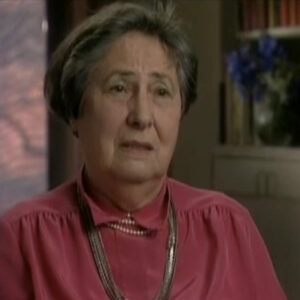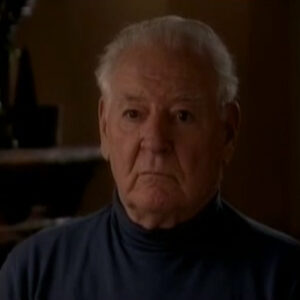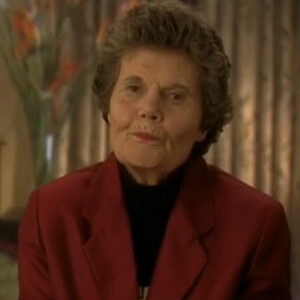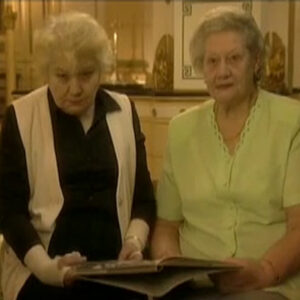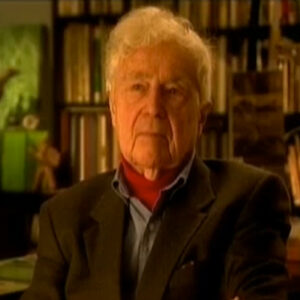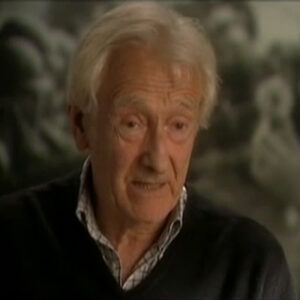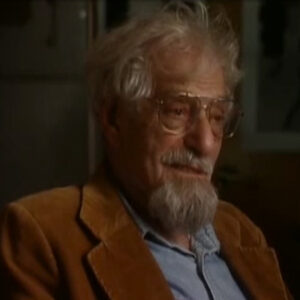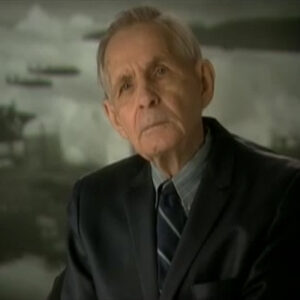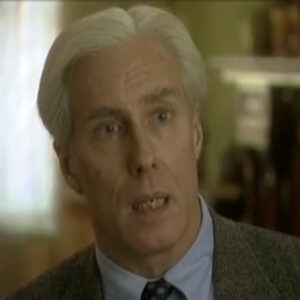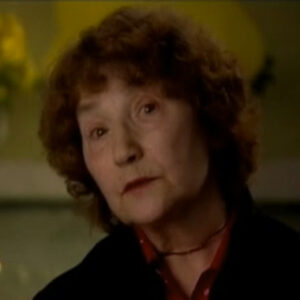Speaker His job was during the war. Forty two and I was advised and they. We’re going around hiring what they called office skills, what they call college girls office skills or something like that, they used to have college boys, office boys. And then during the war, yeah, they only hired, you know, from Harvard, Yale and Princeton.
Speaker And the girls were Vassar, Smith and Radcliffe. I mean, it was a very different world then.
Speaker Yeah, right. And if and then I got a job at Fortune. I worked part time for a while and then I got a job at Fortune and then actually quit to get married, which everybody was very shocked at.
Speaker But they were shocked that you put together the result that you got married, shocked that I got married and quit. But that’s what people did that right? It wasn’t exactly.
Speaker Yeah, I know. My mother lived in New York and worked at the Museum of Modern Art. Left it all to go live in a Republican town in Connecticut. Oh, really? Reverting to her old life. Are we are we set for rolling? You’re rolling and rolling. Oh, yeah. But so I want to leave it up to you to go in. OK, I’ll do it on the questions and. Yeah, OK, sounds good. OK, OK, ready to roll. All right, a couple of things. The more energy, the better.
Speaker OK, use my hands. All right. And also because you won’t hear my voice on the soundtrack. When I ask you questions, you can kind of repeat the question. Like if I say, you know, what did you meet Kapit? You say, I met Coppo. Oh, I get it. Yeah. OK, so that we know they know what your questions are not going to be on the soundtrack. So you’re going to edit the whole thing at the end to get some credit flowing. Yeah. All right. And that and the other thing about the editing is that if you need time to think about something or you want to say something a little bit differently than so I’m going to ask you first, when did you first meet Robert Kaplan?
Speaker Well, it must have been in 1950. I was thinking about that. Oddly enough, yesterday I was trying to remember because I know in 51 I went to Paris with the children, with my children, and Cappa and Jimmy were there at the time. So obviously I knew him before, might have been forty nine. And I met him because Jimmy. Was a close friend of ours and lived next door to us, and we all lived in that establishment known as the McDougle Sullivan Gardens down in the village. And so we all kind of knew each other because it has had a communal garden in the back. So all the young mothers with young babies all knew each other. And that’s how I met Cappa first, but fleetingly because he came. And in typical kapa fashion, he was there for two or three days and then he went off again, you know, and then he came back. I don’t know what the time lapse was. I mean, long since forgotten that. And then he was there for a little longer. So then we really got to know when it was a very casual thing because we would go to jammies and he would be there or she and Cappa would come over. But it was a very casual thing. And because he was a European, even though by that time he was an American citizen and I sort of felt a certain sympathy or a certain thing just because he was so European, it seemed to me.
Speaker What does that mean, being so European? What what how did that how was that expressed?
Speaker How was his European this expressed? I mean, that’s a very difficult question for me to answer, because it’s just makes up little things, maybe even makes up of the way he walked or the way he stood. I mean, he had a habit when he of putting his jacket over his shoulders, you know, not putting not putting his arms through the sleeves and so forth. So and then he also had a habit of standing by the fireplace. He liked that position when he was going to tell a story or something, you know, and then also he his attitudes were.
Speaker I’m.
Speaker He was amusing and it wasn’t a joke kind of wit at all, but he was amusing. He was amusing. He didn’t I don’t think I ever heard him tell a joke in all the time I knew him. But he could make a little joke, a little witty remark, you know, and he although I know he took things seriously, he was not serious about things publicly. Hmm. No, he wasn’t. He didn’t he never I never heard him pontificate on an issue at all.
Speaker Did he speak about politics at all?
Speaker I’ve never heard him speak about politics. He may have done to other people, but I never heard him speak about politics. He was very nice with the children, for instance. He really the children really liked him. And I remember one year he was there or in and out. There was a terrible play of those gypsy moth caterpillars in New York. And so there were caterpillars all over the garden and one of my children, very young at the time, always referred to them as capabilities because it was such a kind of figure in his life, you know? And he remembered him and he was he did make an impression, you know, and he knew how to get along with kids.
Speaker We talked more about specific instances with children and a future that I wish I could think of something.
Speaker I think you may have to talk to Jamie’s oldest son, John Paul Hammond, about that, because I think he I really can’t think of him except he’d come in and maybe pick one of the younger ones up and chuck them up in the air a little bit or something like that, you know, but he was not a condescending person with children. I mean, I’m being awfully general, but because I simply cannot think of an absolutely specific instance while I can, as a matter of fact. But that takes us. We were in Paris and I had taken the children see various things that were awfully young that time. My children marry my oldest daughter was six and the older boy was four. And one of the things I took them to was not with them. And I showed them the famous window, you know. And then when we were leaving Paris to go down in Italy, Jimmy and Caspar took us to the railway station and and Caspar said to David, my boy. So what did you like best? And he said, Oh, the window was a top box, you know? I mean, he I mean, that’s the most specific instance I can think of.
Speaker Did you mention to us that he would run all over the house with the boys playing roughhousing with them?
Speaker Well, he did, I think. But I asked Jumper about that because I can’t really remember that. And, you know, he never roughhouse with my kids, but it wasn’t the same relationship. They didn’t see him that much, you know.
Speaker OK, and when you did first meet him, either the brief time or in Paris, what was your first thought about him? Did you like him? Did you see? What was your first impression?
Speaker My first impression of Capac, whom I had heard of before because I had friends that life where he had worked, and so I knew what he’d done, I knew his name. I knew kind of that he was a Hungarian. You know, I knew all these things about him. My first impression was that he was really first of all, I thought he was maybe a little bit of what you might call a wild year in French. And I don’t know the English equivalent of that. But, you know, can you think of the English word for that? I should have it a little bit. Well, the little bits of a book about you, somebody who would enjoy life, be stylish as a person. And Capote was extremely stylish. I mean, just this just occurs to me it’s a weird way of describing him. He had his own particular style. You would never mistake him for anybody else. And and it was he touched lightly on things. And I think a bulldog maybe has that quality, too. But I realized pretty soon afterwards that he was much more than that because I had seen his photographs and he, you know, read what everybody is supposed to have read, whether he did it in school or whether he did it later. I don’t know. But he had he knew the references. As that story about David and the window shows, you know, I mean, you knew that that was one of the things you should see in Paris when you got there. And a lot of people never go there or they don’t realize how important that window is. So he knew all those things. He was very quick. You know, very quick indeed.
Speaker Tell me about it. Do you remember his clothes that you mentioned?
Speaker I remember he had a brown suit. He he what he usually wore shirt and tie, he did not dress, he was casual, but he didn’t dress casually, you know, I mean, he didn’t wear just a t shirt. I never saw that kind of thing. And that, I think, was also, in a way, quite European, that he really did dress. And then. Have people told you about his famous car?
Speaker Tell us about the car. I’ve read about many cars and many crashes.
Speaker Well, he had a green Ford, which he drove around and which I think was quite old. I don’t know how old. I don’t know. But yeah, it was just sort of not terribly bright green Ford. And I know he and Jimmy rode around a lot in it and he was very proud of it. I actually never rode in it because, you know, I never had occasion to. So that’s all I can tell you about his car. But other people, I’m sure, will be able to tell you, particularly when you get to Paris.
Speaker So that was it was going to ask that. Was that Paris?
Speaker That was Paris. I don’t think that car was ever here. I don’t think it warranted being brought across the Atlantic. No, it was not sort of a it was a Ford.
Speaker Right. What was the question?
Speaker Well, I was going to ask you about what you know about his early life, what what his family life was like, what was going on a little bit about what was going on in Budapest in his political activities there.
Speaker Well.
Speaker I have to rely really on what I remember from what Julia told me, because she worked very hard. Julia were terribly, terribly hard because the Mr. Friedman have Friedman, whatever you want to call him. The father was not a hard working man, you know, like the cafe houseflies, Howard playing and so forth. And that stuck her there with three children, three boys to bring up. And I have a feeling somehow that she was terribly busy all the time and that the children there was food, but sometimes perhaps the children had to go themselves into the kitchen. And and she told me once that he. He was in and out of the house all the time, you know, he was not he didn’t stay home and read think he was he was searching for something and he terribly enjoyed life. And, of course, the death of the older brother was a blow to him.
Speaker The searching is an interesting idea that you get a sense of what she meant when she said he was searching for something as a boy.
Speaker Well, I think he was searching for a life beyond the street on which he lived. You know, he wasn’t quite sure what it was and perhaps whatever initial left wing involvement he might have had was part of that. Because this sort of petty bourgeois life was very unappealing to him, you know, about the life of what the family did and what their life was like. Well, I think Julia worked and I think the father got in, made us shoot once, once a year maybe. I don’t know. And. Bob Coppo was certainly Julia’s favorite. I mean, I don’t know about the older brother and I never heard Cappa mention him, which was typical, you see, of him. That’s a very serious thing that he would not.
Speaker Bring up.
Speaker And what is the serious thing that he would not bring up his brother’s death?
Speaker You know, I never heard him mention the brother, actually, he might have to other people, but I never heard him. Did he mention his father? No, I don’t think I have. I mean, I met Julia, you know, through him, and I know all of that, but. Never mentioned his father and other conversations at all.
Speaker And what were your impressions of Julia? What was she like?
Speaker Well, she’s difficult. I felt I mean, she was a woman who had been thank God she was here, you know, in the United States, but she had been, in fact, uprooted. And she clung to Cap. I think the uprooting was one of the main not not the main reason, but that was something that she held onto when she was here. And it wasn’t here that much, as I said he was. But when he was here, he did look after her very well. And I think he really was an honorable son in that respect. Cornell took the brunt, you know, of looking after Julia. She was a difficult woman. She was demanding.
Speaker Uh.
Speaker She didn’t really she wasn’t particularly interesting woman. She wasn’t an educated woman. If she hadn’t had to work so hard, she probably would have been a housewife only, you know what I mean? But she really did. I think I have an impression that she worked very hard to keep the apartment, to find clients, that sort of thing.
Speaker So maybe you could just say what their business was and what kind of clientele they had in Budapest that I really don’t I don’t know much about the kind of clientele she had.
Speaker I would imagine it might have been largely Jewish, but I’m only guessing. But upper class Jewish. But I’m only guessing. But I know they lived sort of in a Jewish Middle Ages. They live in a Jewish part of town. I think so. I think that that’s probably. You know, people came to her. I don’t get the impression that she had the kind of business which was quite common at that time in Europe where the seamstress or the dressmaker went to the house, I had more the impression of the people came to her. But that’s only an impression. And maybe somebody else would know more about that.
Speaker OK, now, when we talk to you in Boston, you mentioned the cappa. Has he understood tragedy? I’d love you to talk a little bit about that. Well.
Speaker He was constantly aware of tragedy.
Speaker Of the potential for tragedy because he really had. The death of his older brother. Was a very tragic event for him, Gardner’s death.
Speaker And all the deaths he saw in Spain so that he was always aware of the potential for tragedy.
Speaker And perhaps you almost expected it. I don’t know. And as for his own. You know, the risks he took. Which could certainly and did, in fact, in the end lead to tragedy were part of that. You know, I mean. So you accepted the tragedy would come in your life, but that’s very European Americans don’t think there’s going to be a tragedy. I mean, you know, so much as Europeans who have a tragedy, so much tragedy in European history.
Speaker Well, his early life was so difficult. I mean, you know, from this from his teenage years on, you can talk about that, how the crash affected their financial life and then his getting into politics and being kicked out of work best, etc..
Speaker Well, I don’t know really too much about that. I know the atmosphere of the time better because I did a lot of reading on that at one time, which is a you could and as somebody said to me, I’ve forgotten who said that misery was fashionable. At that, in the 20s and 30s, it was also all tied. It had a political undercurrent, you know. It was not fashionable to be rich and spend a lot of money because so many people did go broke, so actually you must remember that where he grew up in Budapest and where he was born, 1918 was the dividing line or the Treaty of Versailles was the dividing line because they had been part of the Austrian Hungarian empire, which had offered stability. It was actually not a very stable stability because it absolutely went in World War One and then it was all divided up. But that had a devastating effect on some people because, I mean, some parts of the world that were suddenly supposedly on their own and Hungarians had been fighting to be on their own for a long time. And they had their own I mean, the emperor of the of Austria was also the king of Hungary, but now they were completely independent and Austria shrunk. Trade was absolutely devastated in that part of the world. Devastated. I’ve just been reading Jan Morrises book about Trieste and she describes, you know, which was the Austrian port and she describes what happened then 1919. I mean, it was a huge port. Nothing was finished to support up to that, so that would have affected Cappa, you would have expected I mean, he grew up in a certain kind of economic I can’t say misery because they weren’t that poor. You know, they went barefoot, poor by any means.
Speaker But they but there was no solidity. What are you going to expect? What do you expect? There was no real solidity.
Speaker That’s really interesting. Yeah.
Speaker You see, I remember because I grew up in an area that had been a part of Austria. I mean, I didn’t grow up there, grow up mainly in England, but we lived there quite a bit that have been Austria, part of the empire, and was given to Italy in 1918. Never mind all the promises that were made about that, and then when Mussolini came, it really got bad there. But I remember how people were. I mean, my parents bought a little villa there, which had belonged to a very substantial architect.
Speaker He was finished after 1919. Finished. You know, you’ve got better again in the 40s after the war, but. And the poverty. Among people who had been fairly it seemed OK, well to do. Many of them were wiped out. Now, I don’t think the Friedmans were ever that well to do before, but it but it got harder to find clients probably after, you know, after the whole empire was done.
Speaker And how do you think that how would that have connected with Cappa becoming politically involved?
Speaker Well, I think that I imagine there was a great amount of political involvement in the media. You know. I mean, you’ve had your particularly in Hungary with Blackhorn. So that a left wing, a Marxist point of view or a Marxist attitude would be common. I mean, you’re a Republican, you’re a Democrat, you’re a Marxist, you know what I mean? It was very every day it wasn’t whatever the sort of political Ohga that. It might seem nowadays, but this was before Stalin in the 20s, right? So there were a lot of people who particularly in the arts. Who stayed in Russia and performed in Russia. I mean, they were Russians, they didn’t leave. It was Stalin who really finished that.
Speaker So how could how would you characterize the I mean, you can sort of characters, Republicans and Democrats to some extent. How would you characterize those who were on the left at this time? I mean, was it a concern for social issues? What was it?
Speaker Oh, I see. It would have been concerns for social issues. It was a humanitarian, oddly enough, a humanitarian point of view, because although Lenin did terrible things in Russia, perhaps people didn’t know that.
Speaker They didn’t he didn’t have that I mean, he had a different kind of reputation, so they may have been looking at something through pink glass spectacles when really things were pretty awful. And don’t forget that the terrorist regime had such a bad reputation. So that anything the idea was that anything was better. Than that, I think that’s for them. I mean, my family had friends who were communists, English mainly, and my father just laughed at them, he said, I remember in the 30s saying, you people there’s no difference out of Hitler and Joseph Stalin, as far as I can see. But that, you know, that was not maybe an acceptable point of view. People were looking for answers. And Marxism, Leninism was one of the answers, particularly somebody who came from Kappa’s media. Which was not rigidly intellectual at all.
Speaker And how do you think that sort of military and leftist way of looking at the world, can you connect that to the faces in his pictures? How the way he took pictures?
Speaker Oh, yes. When I mean, he was interested in that. If you look at his pictures of the famous Aronow sit in strike, which was the first sit in strike, I think in the world or certainly in the Western world, it’s the only one I’ve ever. I mean, after that, they’ve had fairly common. And he in those pictures, you really see that he was interested and that he was representing the workers.
Speaker It was only later, you know, after the war, and that he began to take pictures for Holiday magazine of people skiing on the slopes. It was, but that really engendered something in him. And also the pictures that he took of Trotsky. You have you have a sense that he was really interested. That was his first big assignment. It was because somebody else couldn’t go. Right. I’m sure you know that. So. And the same thing was true in Spain. And then I think that carried over. To World War Two, to coverage of the war, but the soldiers replaced the worker.
Speaker Is that clear?
Speaker That’s very interesting, yes, because if you look at these photographs and that photograph he took of the soldier dead soldier and the guy on the balcony in Leipzig, which I think is practical because I’ve always heard that he was the last American to die, but that that would have to be checked on. Don’t know. But there you can see again, it’s his interest in tragedy. I mean, his appreciation of tragedy. And that’s a very tragic photograph, you know.
Speaker I think you know where he aimed his camera, I mean, to put words in your mouth, but where he aimed his camera has something to do. In other words, he was shooting civilians in Spain as much as he was shooting. Oh, yes.
Speaker But they were people who were suffering. You see, so that they would be although he shot at wartime pictures, he was really covering every aspect of the civil war in Spain. Unlike when his Normandy pictures and the other pictures, you know, there he was specifically shooting soldiers and mainly guys. But I think he was. Very sympathetic to suffering. I mean, I do think one of Kappa’s character traits that he didn’t he didn’t talk about, but he was very he was a very humane person. You see, well, I think that also shows in his fact that he like kids. You know, I mean, it’s all part and parcel, and he genuinely liked them, he wasn’t patting them on the head and saying, Aren’t you cute? And so I. I don’t know. He must have hated people, but I don’t know it, I never noticed it and I never heard him really say anything spectacularly nasty about anybody. He never talked about National Socialism. But then, of course, we never had political discussions of that kind, you know, but he must have seen all the things he never talked about being Jewish, which he never didn’t not talk about. It just didn’t come up as a subject, you know, even though he had gone into Germany and all that seen going on might talk a little bit about the timing that he arrived in Germany.
Speaker What was going on then?
Speaker Well, when did he arrive in Germany? It was thirty one, you said, just two years before Hitler. And he then, of course, went to Paris. So that was the time of the terrible street fights between the and then with the communists betraying the socialists. And siding with the Nazis. Which Cappa may not have been aware of, but. Because he was, but. Because he was in street fighting. And of course, it was a terrible time in Germany. When everything was going down the drain.
Speaker And danger was everywhere, what danger was it could have been, you know, if it was for anybody who was Jewish, for anybody who belonged to the Social Democratic Party. Which is a very middle of the road party, comparatively, you know, so.
Speaker And he was very he had a lot of initiative to to get out at the right time. Let’s focus on Jimmy, since that’s where you knew him the best. Tell us what Jimmy was like.
Speaker Jimmy was. A very warm person. She was beautiful in her youth. She was really a great beauty, you know, and she, I think, went out to Hollywood for a while, but that didn’t work out. And then she married John Hammond, but she.
Speaker She was a sweet person. And I think that attracted Kapa.
Speaker I once said something to him about Jimmy, so beautiful, and he said, yes, but the reason I like it is that when I came to see her, when I came back the second time, she was so happy to see me. You know. And that’s what really, I think, tied him to join me for a while, which she especially if you serve or bodacious or I wouldn’t have said she was a fugitive, I would say she was actually quite quiet. You know, she did like parties and stuff like that. And she but I think she really wanted her to marry her. And she said that thing, I think I told you this once before, she said.
Speaker I don’t care if we have to live in Little Rock, and I say, and you can’t imagine. In Little Rock, Arkansas, I mean, of all the unlikely places, you know, rather than having to go to Paris every summer to be with him, she’d want to go to Little Rock and live there with you know, she used that as a figurative remark.
Speaker And obviously she didn’t really mean it. But still, that’s what she said. That was a long time ago. And I remember it from then, so. Anyway, and what else can I tell you about her? She’s, you know, born and brought up in upstate New York. In Batavia. And her sister was married to a psychiatrist and lived in New York, both of which had two brothers who stayed upstate New York, they and Jamie came down here and she saw a lot of his sister, very little of her brothers.
Speaker OK, OK, sound the sound of a truck, just let me know with your teeth. Yeah, I can take tape of my. It’s great. I know. OK, so why do you think Kepa didn’t marry her? What was what was the thing with. I don’t think would have married her to start again. OK, so the same question. Why why wouldn’t Kevin married or anyone.
Speaker Well, that’s a very difficult question.
Speaker I think with a cap, I would imagine, Jamie, I don’t think he would have. I think she was quite. Interesting enough for him or quite challenging enough for him? I think that’s probably what it amounted to. And, of course, they had totally different backgrounds in a way, and although they were they both liked sort of New York City glamour, life, you know, showbiz. All that stuff. But in this case, I often felt that that was also a professional liking because then if he knew John Houston or, you know, I mean, those maybe will get jobs that way. I mean, that sounds very awful, but I don’t think it was over. But still, it led to things, you know, and he had a sort of off and on relationship with life. I remember they sent him to Israel on an assignment and I think he took very good pictures. But they came back and there was no caption material. He didn’t have a reporter with him. And so I don’t think they ever used those pictures, as far as I know.
Speaker So he be kind of a little bit irresponsible in that way.
Speaker Oh, yes. I mean, he could they should have sent a reporter with him. But I remember the picture I was working at like freelance at that time. And the picture editor said, I can’t use Cappa again, no captions with the Israeli shoot. So but to get back to Gemmy, I think Cappa really if he ever had married anybody who would have married. Somebody who would maybe what he would have had a choice, we might have married some very glamorous figure who would have loved him. Or you might imagine somebody was willing to take the background and so to speak, get the caption material for him, whether it was in the kitchen or on an assignment or what, you know.
Speaker And Jimmy was not one to stay in the kitchen and cook all day, so if she was not as interesting as what, he would need it in a way, I would characterize their relationship. Was it about having fun?
Speaker It was fun. And he was very fond of her. And she loved him and he was very fond of her and they sort of had a good time together, but she was. A little passive, because I do remember when we were in I was in Paris at summer camp, I had to go off on an assignment somewhere just for a day. And that left me with nothing to do, you know, and I was taking the kids somewhere. And so I said to Jimmy, why don’t you come with us? I’m taking the kids to whatever, what some side or something where maybe we were taking the train out the shot. You know, I was trying to get some kind of something into their heads. And Cappie said, Yes, Jimmy. You know, because he she wasn’t enterprising on her own. It’s a very I hate to say this, but I think it’s a woman’s characteristic, particularly, you know, from.
Speaker Of that time, exactly of that time, but it’s so interesting to me that the love of his life was not who I believe was good. There’s nothing like that. You could talk about Gerta and what they’re how their relationship. I mean, I know this is just not firsthand, but what you gathered about his relationship.
Speaker Well, also, that book tells you a lot about their relationship. And Ganda was a very strong woman. Which Demi was not I mean, she was a gardener, was a determined, strong woman who got away from her family too, you know, and her kind of petty bourgeois background.
Speaker But I don’t know if you think of all the women, I mean, Pinky was also very attractive and a little giggly and terribly pretty and but she was she was more sort of an adornment.
Speaker Perhaps I think he was crazy about her, but. He was very dark, she was very brown, you know, looked good together. And what about Ingrid? Well, that’s different. I don’t know anything about that. I really don’t know anything about and I never did talk to her. And yeah. OK, so about Ingrid Bergman. You should I don’t know who could help you there.
Speaker We are going to talk to Isabella. Who. Yeah, but yeah, I got it from her mother. That story so.
Speaker Well, of course it was always the myth story about how he met her. You know, that story in some Paris hotel and he and Edwin Shaw sitting together and in Birdman came in and they decided to send her a note saying, which one of us would you pick? And of course, you pick Cappa and that’s supposedly how it began.
Speaker That’s interesting. Well, there was a note published in Richard’s book, which actually is a note from both of them inviting her to dinner at that. So I must have read that, but I don’t remember it. Yeah, you said something when we were visiting you in Boston about how Jimmy loved having kept her around because of his relationship with the boys. And you’ve kind of touched on that. But maybe you could say that for the airplane. Also, I’m hearing that no paper could learn after years. Oh, God, you catch it while you’re here, because otherwise you just shoot yourself in the head.
Speaker And when I know this from watching my husband working on films and hearing that. Yeah, yeah.
Speaker So OK, so I was going I was asking you about. It was nice for me to have mantra for the boys.
Speaker Well, yes, well, that’s perfectly true. I think it was.
Speaker But she wasn’t and it wasn’t staying very much in Jamie’s. He had a hotel room somewhere, I think. I mean, I don’t know, but I don’t think he was actually, so to speak, they had breakfast every morning or anything like that. And I think, as I mentioned before, he hated dinner parties. He wouldn’t he just hated, you know, being invited to a dinner party a week from whatever day of the week it might be. So that. Because that was too that was getting trapped, too, wasn’t it? And so I don’t think he really spent that much time. I mean, he spent a lot of time with Jamie, but he was not there all the time, even when he was in New York. I as I say, you know, he got along well with the kids, I guess I’m looking for is that you have mentioned that Jimmy told you something about that.
Speaker I don’t see what it says. I can’t remember. Well, I guess I didn’t right exactly the way you said it here, but just that she said something that was nice for the boys. Oh, yes. For a while it was yes.
Speaker It was nice for Jamie to have somebody that the boys liked and who was sometimes there. And they had quite a bit when he was in New York. I think that was very she liked that. And she also liked the fact that, you know, Cappa had a large circle of friends in New York. And so a fairly large circle of friends and acquaintances so that she like that, you know, she liked I remember Sono Sato, are you talking to her?
Speaker We’ve met with her, but she feels her camera days are over.
Speaker Oh, really? She’s gotten like a lot of weight. She’s she was she should have been gone. We might still convince her. Yeah. If you can, because she she knew cafA much more in his party life in New York than we did.
Speaker You know, who were some of the people you mentioned, the glamorous people in his life. Who were some of them mentioned? Houston.
Speaker Yes, Houston. And people like Seona. You know, she was there. I remember one time visiting with that guy, Harold Arlen. Could it have been Harold Arlen? Came, oh, I should remember, Jamie had a piano in her apartment, and I think it was Harold Arlen who came down one night with Jamie and Cappa and a couple of other people and then sat down and played the piano all evening, you know, and that kind of thing. And then she was always good friends with Marty Gable and his wife, Arlene Francis. And all of all of them were lively people that he enjoyed being with, you know.
Speaker And what about their life together in Paris? What was that like, a typical day for for them when they were together, when they were together in Paris one year I was there.
Speaker Cappa was first staying in that little room upstairs at the Lankester. Then he had rented a studio because Jimi had always wanted a studio. But by that, by the time and then Jimi came over and then they moved into the studio. But I, I left I however, I would think that Kappa’s life was very much the way it was in lots of ways when Jimi wasn’t there because he spent time at Magnum when it was the racing season. We went to the races a lot. Gemmy went and I remember Jimmy Durante once being in the crowd, you know, who didn’t say a word the entire time, battle uprating talk. The model was part of that group. Who else? Irwin Shaw and his wife, Marian. Her name was I think it was that and some of them were Americans who lived permanently in Paris and some were Americans who were there for a certain period of time. And so and as I said, a lot of time was also spent at Magnum so that they would maybe have lunch or dinner with Chhim or George Rogers. You know who with the very end kaffiyeh, of course, who were the various people? The Warren Magnum, and I think they hung around Magnum a lot.
Speaker Yeah, so we’re getting north. I think that was fine. And then I’m going to ask you this when it’s quiet about, OK, so I’m going to ask you about Harper and gambling. You reminded me of it talking about the racist. Talk to me about his gambling.
Speaker Well, I think he gambled all the time. I mean, I think he gambled. He liked to play poker and he liked to go to the races and he gambled when he went out on assignment and during wartime assignments in a very basic sense. And it was part of what kept him alive. Gambling. I mean, what kept him but fired him up, let’s put it that way. He he really was fascinated by the by the races. A few times I went with him and, you know, he was always in a large crowd and people would go. But he. I never played cards with him. I think it was strictly male card game, you know, no women. And I think it was always hopeful that he would be able to pay Magnuson’s debts. And I don’t think he did very often, but he did once in a while.
Speaker And what was it about gambling, both with cards and with his life?
Speaker You think that one to begin with, maybe it was in his genes from his father.
Speaker I mean, it’s possible I mean, if you see your father playing cards a lot in the afternoon in the coffee house, that kind of something you you might not acknowledge, but you would be carrying it with you. Am I talking loud enough for you? You’re fine. Oh, sorry. I forgot. Sorry. You know, so I think. And also when he left Budapest.
Speaker He was, in effect, going into a completely new life, you know, didn’t even speak German, so it was I like what you were starting to say. You were watching his father gamble. And then when he left Budapest, was it really you know, it was all a gamble.
Speaker And at that time, a lot of people had to take that gamble. Kapa did it very well. I mean, he he met Gowda, he got assignment’s. From I’ve forgotten the name of the man I was in that terrible ran the picture agency in Berlin, the fame, they brought it over here. And Goodman. Goodman, yeah. Goodman gave him assignments or that he worked in the darkroom. They gave him jobs in the darkroom at first. I mean, Kepel was very young. And but he was willing to take things on. He was willing to go to Spain. She went to Spain, too.
Speaker Yeah, he was he was willing to risk his life, and I’m just wondering if it was the risk that was compelling or the reason for the risk, which was the cause in Spain.
Speaker And I think the cause meant a lot to him. I don’t think he would have gone if he’d been asked to cover the Franco side. So the cause was right built into. Why he would go, I mean, he wouldn’t have been asked to cover the Franco side anyway being what he was, but supposing by some curious bypass he had been asked, he wouldn’t have done it. So, yes, it was risk, but it was risk for something that he thought was very important. Great, and then maybe just winding up now and that last gamble that he took in Vietnam and, you know, the Germans saying, which is the let’s stick party, which means you don’t play the last hand. And I heard that over and over again about taking that assignment in Vietnam. He played the last hand and he lost, you know.
Speaker God gave me Jill.
Speaker Do you remember? Were you with me when she heard about I was with Jamie.
Speaker Yeah, let’s play. So I feel.
Speaker I’m actually not a lesbian anyway. Tell us about being with someone.
Speaker I remember very clearly that evening because we were going to go see a play at the Phoenix, which at that time was a relatively new theater theatrical venture. It was really the first off Broadway theater. And we had subscribed and we were going to go and somebody came running over and I may have been John Paul or Jason. I cannot remember and said Jamie has just heard that Cappa has been killed. And so I went over immediately and there were other people, other the friends came. And I know somebody said cynically, I wonder how many other girls and women are meeting tonight. We’re winning, but it really was a terrible blow, a terrible blow, and it devastated Julia. Completely, I think she. Changed very much in some way. I mean, you know, because she always referred to capture as my beautiful boy. So she would and then she in a way, she almost couldn’t say anything else about him, you know, I tried very hard to get something out of her about her life in Budapest and his life in Budapest, and it was hard. She would only say that one thing. I mean, what she could say more, but, you know, and then she could also say not so nice things about other people. Maybe. But but he was central to her once she was here. I think he was central to her life.
Speaker And the boys, more in women.
Speaker I don’t I’m sure they did, but I don’t really remember that, you know, I remember Gemmy devastated.
Speaker On.
Speaker And we were all devastated. I mean, all people that life were devastated, the older ones who had known him and known him in the war, you know, and people like the Worton bakers who were close friends of his childhood, and Baker, who had been a correspondent, I forgot to mention earlier on, for instance, in that group in Paris, although Hemingway wasn’t there, if he hadn’t been there, he would have been involved. I mean, Cappa met him.
Speaker That’s of stuff.
Speaker Yeah, Joanna, but his death really threw a lot of people, I mean, through his professional friends, he had good friends of Life magazine, Ed Thompson, who was the managing editor, and he wasn’t the managing editor. I know he was by the time Capa was killed. People like that. We’re really taken aback. You know, nobody somehow thought. And after all, it was a landmine, there was no actual fighting, he just stepped on a landmine. So both I think people who knew him, we were very sad indeed, people who, oh, God, my God, about this. We’ll have to check that out with us this morning. So it really was out of left field somehow, you know, we weren’t that aware of Vietnam at the time. Was it really before the Americans went in, you know, and I think. It was still Indo-China. I’m not sure it was an joshin, I think. Yes, yeah, it was, yeah. And Cappa was just asked to go because somebody else couldn’t go. And I think it was what Wilson Hicks, I think, was the picture editor of the time, and I think he felt awful because he had asked Cappa to go. And I think he felt awful, and I know a lot of people that life felt badly because you I had been with him in London during the war. You know, there had been correspondents there.
Speaker It seems to me that he and others may have felt he lived a charmed life.
Speaker Well, I think everybody hoped that he lived a charmed life because he was such a charming person and he had escaped so often. But it runs out, it’s what the Germans say, you’re going to play the last hand, let’s be friends.
Speaker One less thing I’m going to ask this of everybody, if you could think of three adjectives.
Speaker To sum up what I wish you’d warn me of that, three adjectives to sum up cappa a with little you know, I’ve got really OK, three adjectives.
Speaker Well, to begin with, of course, he had a very charming smile and a very a face that was very alive. Secondly, I think the reason he was so alive is that he was extremely intelligent. Very aware of what was going on around him. I mean, he had a good brain and he used it combined with the charm. And of course, he was a very good photographer, which people often forget. And it took amazing pictures, you know, he didn’t if it’s not a costume, but some kind of photograph. And but he took the heat. He also took the moment. And and so he must always when he was in a situation where he was photographing, I would assume and this is an assumption on my part that he was aware of everything going on around him. And was able to concentrate into whatever pictures he was, take whatever pictures he was taking at that moment. So. So we’re very aware, very intelligent, very capable of taking what he saw and what he heard and what he learned and forming something out of it, I mean, making sure he didn’t just wasn’t just aware that this was going on. It was much more than that. He was able to use it. For his interpretations. Right. Does that do it?
Speaker Yes, that does it. Let me just ask you a few things that I kind of miss, that this will be kind of jumping around. You had mentioned a story about Namaroff. That Cappa had helped her out in Paris after a disastrous love affair. And we’re going to interview her. It might be nice to just say that.
Speaker Yeah, well, ask her. Yes, I would. I would talk to you about that, I don’t know enough, but I know that he really helped her emotionally. He was really very supportive. But in terms of details, I don’t remember. I cannot remember the name of this man who treated her so badly, I think she may even have married him. I’m not sure whether he was think he was English, but I can’t remember anyway. He was not thoroughly liked by anybody. And and Inger was although she came from a completely different kind of family after India had also was trying for something when she was very young, the way Kapit also tried for something that on a completely different level because her family was pretty well-off and pretty upper class and all that. But so is what kind of her name is Maria. It’s German. She’s actually doing a fun lot. It’s actually, I think, Austrian. But her family, I think she grew up in Germany, not in Austria.
Speaker OK, and then there was something that you had said to us about Gerta whipping cap into shape and then kicking him out because he was unreliable. I love that you can sort of recreate. I’ll ask you a question. You know what? I’ll ask the question and you can tell me, why did she tell you about that? That’s the question. Tell me. Yeah, just one second.
Speaker It’s interesting, ganders effect on Kapit because there was was an extremely organized woman and hard working and knew what had to be done and Cappa was a was still learning and he was still which would change in little superficial little fish that still went this way. And therefore, you know, and she really did whip him into shape. And it must have been a hard job anyway. I mean, she would say I’m guessing, but she might say today we edit it or today we do this or you do that, you know, so I think she contributed a great deal to teaching him. I think she taught him a lot.
Speaker And why do you think she. What do you think she wouldn’t marry him or why do you think she kicked him out?
Speaker Well, because h she had I think she wanted to stick to one guy yet. And secondly, he was probably irritated her sometimes, you know, perhaps he didn’t go and edit pictures when he showed up or he didn’t do something that he showed up and it was his way of punishing him. I mean, she I think she was quite just going to sound awfully rude and you can edit it out, but I think in some ways she was quite Germanic or quite German, you know. Sort of, and Cappa was totally different from that cappa was really, in some ways a gypsy. We know in some ways he almost led a gypsy life. And he looked like a gypsy sometimes.
Speaker And just a little more about that, how did you live sort of a gypsy life, what would you call?
Speaker Well, you know, the gypsies roam and he roamed and the gypsies. Go back quite often on charm. We’ll get by on charm or use charm. So and they are the opposite, the Romanies of the bourgeois life. And they’ve always kind of stuck out in Europe. I mean, the Jewish communities had communities, you know, the shtetl in Eastern Europe, and they weren’t like gypsies at all or within the boundaries of what was permitted. They were very solid indeed. No Rothschild ever came out of the gypsy community. So I see Cappa in some ways with the roaming and the not wanting to be tied down. And perhaps not always producing the captions he should have produced to go with the pictures he took. It’s a kind of a little bit light hearted or. Just that’s the way he was and of course, it irritated a lot of people if they had to deal with him. Drove them nuts if they were in any way dependent on him. It irritated them, used to put his finger in the till of Magnum and get the money to go to the races, you. And if he had any money, he would always put it back into the table. I mean, he wasn’t a thief. He was totally and completely honest. And he was basically a very decent man in the real sense of what it means to be decent.
Speaker I think it will help you on that point, lightness is a word that comes up a lot when talking about people.
Speaker Well, that’s what I meant by saying he touches lightly on things. Yeah. That he was not ever having. He never pontificated. And he.
Speaker But he could be quite.
Speaker Dismissive if he didn’t think something was right, you know, somebody was right. I don’t mean to say he was soft, he was not soft at all.

